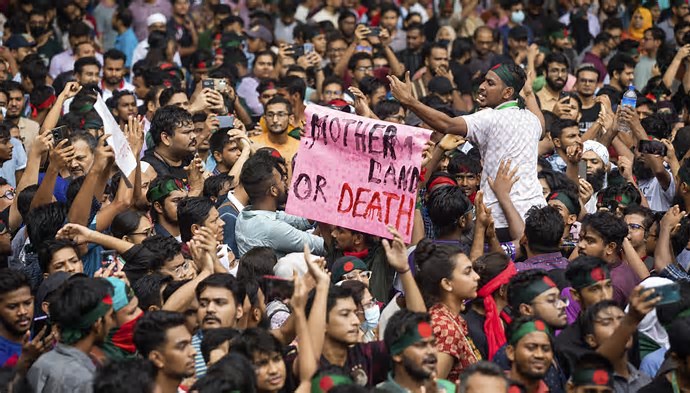At least 76 people have lost their lives in Bangladesh as police and anti-government protesters engage in increasingly violent clashes. The unrest, which began as a student-led movement demanding changes to civil service job quotas, has evolved into a broader call for Prime Minister Sheikh Hasina to step down.
A devastating attack on a police station in Sirajganj resulted in the deaths of 13 police officers, with thousands of protesters storming the facility. The student protest, which started last month, has transformed into a nationwide campaign of civil disobedience.
Eyewitnesses report that both police and supporters of the ruling party have fired live ammunition at protesters, while authorities have employed tear gas and rubber bullets to disperse crowds. The total number of fatalities since the protests began in July has risen to over 270.
Prime Minister Hasina remains defiant, characterizing protesters as “terrorists” seeking to destabilize the nation. A nationwide curfew has been in effect since 18:00 (12:00 GMT), and mobile internet access has been suspended in the capital city of Dhaka.
Law and Justice Minister Anisul Huq asserted that authorities have exercised restraint, cautioning that their patience is wearing thin. Meanwhile, former military personnel, including ex-army chief General Karim Bhuiyan, have expressed support for the student movement, denouncing the government’s heavy-handed response.
The coming days are critical, with protesters planning a final march on Dhaka and urging a shutdown of factories, public transportation, and tax payments. The government faces a significant challenge, as the protests pose a substantial threat to Hasina’s leadership.”



